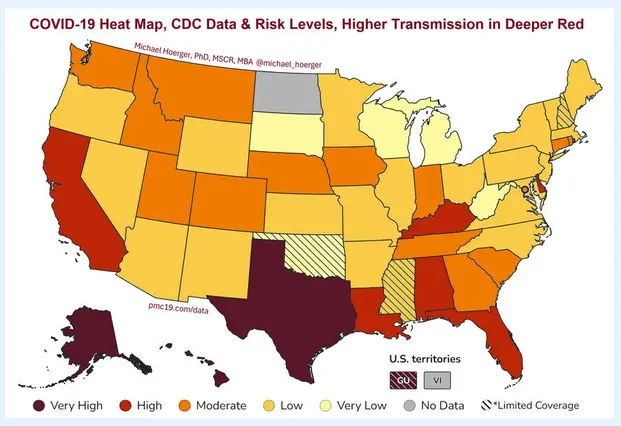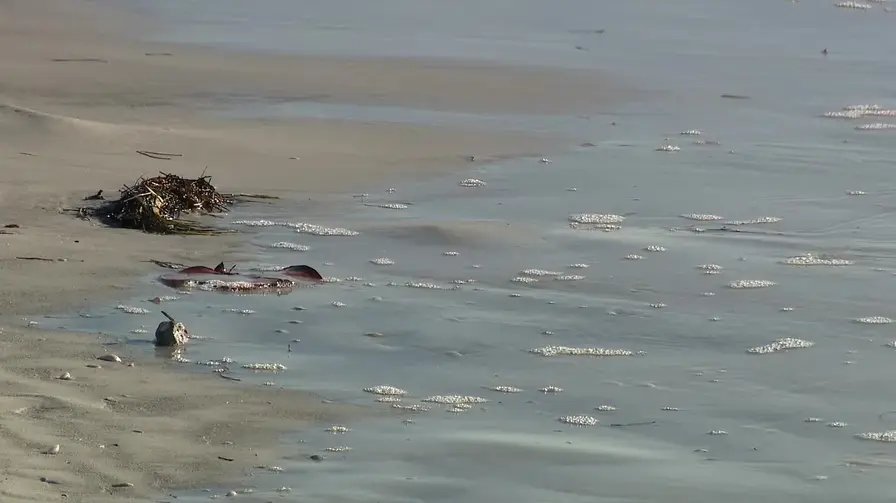T4K3.news
Covidwave update prompts health guidance
New summer wave details and vaccine planning raise questions about next steps for public health and policy.

A concise editorial look at this month for Covid news, balancing scientific updates with politics and policy challenges.
Covidlandia is heating up again
Covidlandia is experiencing a new summer wave as infections rise in parts of the country, with estimates around 1 in 95 Americans affected and higher rates in states like Texas. Wastewater monitoring continues to forecast case trends about a week in advance, even as funding questions threaten long term monitoring. Variant tracking shows a lag in CDC data, but Nimbus and XFG variants remain within the same family without major changes. Fall vaccination plans are under discussion but many details remain unclear, prompting clinicians to consider options such as Novavax or mnexspike as guidance evolves. The discussion around ivermectin remains heated with states offering it over the counter despite evidence of limited effect, highlighting the tension between public messaging and policy.
Early signals on health risks linked to Covid are mixed. Some studies hint at potential cancer and heart disease implications, while boosters continue to reduce severe outcomes. Vaccine safety signals remain reassuring in large population studies, and researchers note boosters can lower hospitalization risk by a meaningful margin. On the policy side, political interference and leadership churn touch the core of pandemic preparedness, with charges dismissed in a vaccine case and key health offices facing staffing and contract uncertainty. The update underscores a fragile mix of science and governance that demands clear communication and steady leadership for the months ahead.
Key Takeaways
"an upside-down world prioritizing unproven treatments over prevention"
framing of ivermectin controversy
"Dont panic here"
caution on recurrence data and mixed signals
"Covid might awaken dormant breast cancer cells"
health risk signals linked to Covid
"Boosters reduce hospitalization risk by 29 percent"
vaccine impact data
The month shows a public health system under pressure from funding gaps, scientific debates, and political noise. While scientific signals point to the continued value of vaccination and surveillance, political decisions and leadership turnover threaten credibility and readiness. The tension between urgent, data driven guidance and the slower cadence of policy change risks leaving communities uncertain at a time when trust is fragile. The story is not only about numbers, but about whether institutions can translate evidence into consistent, practical action that protects the vulnerable while maintaining public confidence.
Highlights
- Vaccines remain the best defense against the next wave
- Funding gaps threaten steady surveillance
- Dont panic here the data remain mixed
- An upside down world prioritizes unproven treatments over prevention
Budget and political tensions around Covid response
The article highlights funding uncertainties, leadership changes, and policy disputes that could affect the effectiveness of public health measures and public trust.
Clear, steady leadership is the strongest shield against a confusing moment for public health.
Enjoyed this? Let your friends know!
Related News

Microsoft advises on Windows 11 upgrade for unsupported PCs

Self harm case highlights AI health guidance risks

OpenAI Announces Changes to ChatGPT's Interaction Style

Rabies advisory in Campbell County

Powassan case on Martha's Vineyard

Health alert issued for Gulf Coast Vibrio cases

Harlem Legionnaires disease cluster identified

Botulism risk prompts recall in Italy
